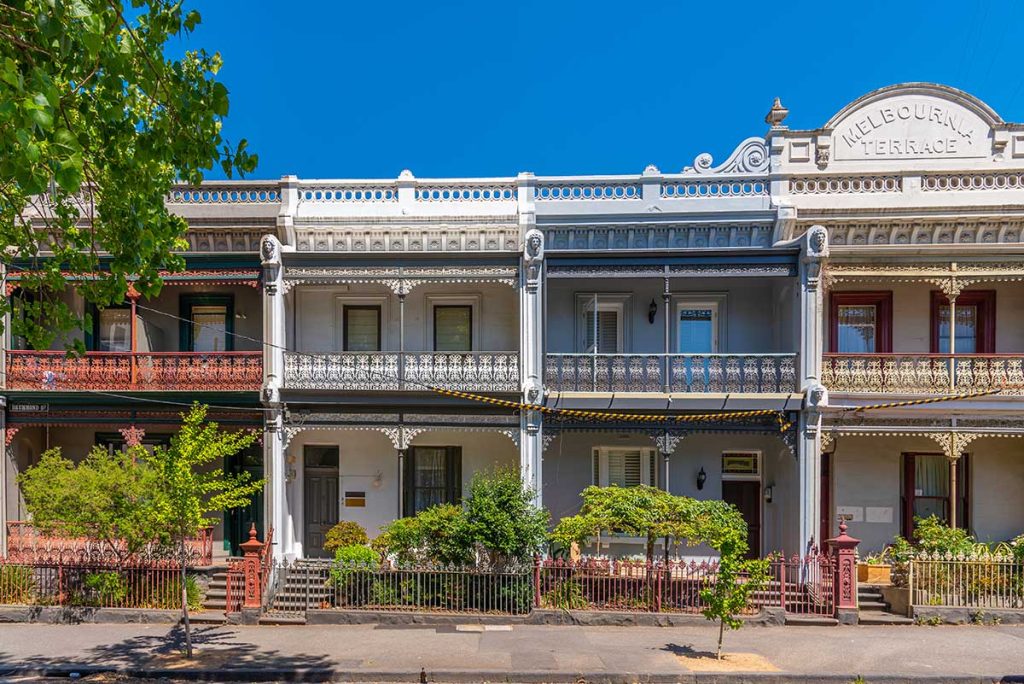Housing
Australia has a very strong property market, with high demand and limited supply. It is not unusual to see queues of people waiting to view prospective rental properties. Having the support of an experienced and knowledgeable Relocation Consultant will assist you to secure a quality property as quickly as possible. Australia offers a broad range of housing options from fully furnished apartments, suburban family homes and larger rural properties.
Renting a Property
The standard of rental accommodation in Australia is generally high with most properties in good condition. Rental properties include houses, apartments, townhouses, villas, units and flats. Flats with one room are called studios.
Types of rental accommodation include:
- Unfurnished
- Furnished
- Share Accommodation
When choosing a location, distance from the workplace and schools needs to be considered. Those planning on using a car should make sure there is somewhere to park it. Some suburbs have limited off street parking and local parking restrictions where permits are required to park the car on the street.
Visiting real estate websites such as www.realestate.com.au or www.domain.com.au is the easiest way of searching for a property, as they provide the most up to date information. Once a suitable property has been found, the next step is to contact the individual agent managing the property to arrange a viewing.
Requirements for making an application include:
- Proof of identity
- Proof of income, bank statement
- References
At this point, one week’s rental may be paid with the application as a reservation fee which will be returned if another applicant secures the property. Once the application is approved by the owner and a lease is signed, it is usual to pay up to 6 weeks rent and a refundable bond comprising of up to 6 weeks rent. The landlord and lessee complete a Residential Premises Condition Report that lists all the features and condition of the premises. In the case of a furnished property an inventory should be kept. It is important that care is taken completing this inventory so that at a later stage the lessee cannot be held responsible for damage that was not observed when the property was first occupied. At the lease’s conclusion, the cost of any items not accounted for are deducted from the bond.
Rents in Australia are advertised by the week but typically paid fortnightly or monthly. To calculate your rent use the following formulas:
Weekly rent payments:
divide by 7 (e.g $200 per week ÷ 7 = $28.57 per day);
Fortnightly rent payments:
divide by 14 (e.g $400 per fortnight ÷ 14 = $28.57 per day);
Monthly rent payments:
multiply by 12 and divide by 365 (e.g ($867 per month x 12) /365 = $28.50 per day).
Once you have the daily amount you can multiply by 365 (or 366 for a leap year) for an annual amount; divide by 12 for monthly rent.
For further information visit the Consumer Affairs Victoria website.
Your ICC Relocation Consultant will be able to assist you with the utility connection process. The landlord normally pays for council related rates and the lessee is responsible for electricity, gas, telephone, internet line rental and usage and water usage.
Purchasing a Property
Properties can be purchased at either an auction or at a real estate agency. Expatriates on temporary resident visas should check their visa status as to their eligibility to purchase property in Australia and whether they need to apply to the Foreign Investment Review Board (FIRB) for permission to buy real estate.
If purchasing a property through finance, expatriates will find it easier to obtain a successful mortgage if they have been working for a couple of months and can prove they have a good credit rating.
When searching for a property to purchase, one of the easiest places to start looking is online. Websites such as www.realestate.com.au and www.domain.com.au can help narrow searches based on property type, number of bedrooms, price, parking and other features that may affect a decision to buy.
The methods of purchasing a property at either auction or from a real estate agent differ as follows:
- Auction: when a property is purchased at auction. The normal legal checks, searches, building inspections, and financial approvals are made prior to bidding at the auction as the auction is regarded as final and there is generally no cooling off period for the buyer or seller. Buyers are usually given a price guide which can vary throughout the sales campaign depending on the amount of interest in the property and feedback received from buyers. The seller is protected by a “reserve price” which means the property won’t sell unless bidding reaches a pre-agreed level made between the real estate agent and the seller. Auctions produce an unconditional contract of sale with a set settlement date.
- For Sale: when a property is sold through private treaty through a real estate agent. Private treaty buyers and sellers can negotiate the price and sale terms. The legal details will be checked as part of an ongoing process of exchanging contracts, further conveyancing, finalising loans and finally settlement of the property transaction. There’s usually a “cooling off” period (5 business days in NSW, 3 business days in Victoria, 5 business days in Queensland, 4 business days in NT, 2 business days in SA), which means that once a price has been agreed between buyer and seller, the sale is still subject to conditions. For example, the buyer may have requested a building inspection or may require finance approval. There is no “cooling off” period in Western Australia unless parties agree to have one inserted into the contract.
- Sale by Expressions of Interest (EOI): when buyers are invited to submit an offer to purchase a property by a specified time and date. Each potential buyer puts forward their best and final offer (in writing). When submitting an expression of interest, you need to include the price you are willing to pay, conditions of sale such as settlement dates, financial conditions and inclusions and exclusions of the sale.
Expatriates need to consider that when buying a property in Australia, it’s necessary to pay Stamp Duty (State Government Tax) on the purchase price. It is the largest cost component of the purchase price and must be factored into any calculations when making an offer. Stamp Duty is applied to both the property value and the mortgage amount. Other fees incurred when purchasing a property are lender application fees and lender mortgage insurance, mortgage registration fee, a land transfer fee, legal fees charged by the solicitor and conveyancing costs. The real estate agent also takes a small commission.




